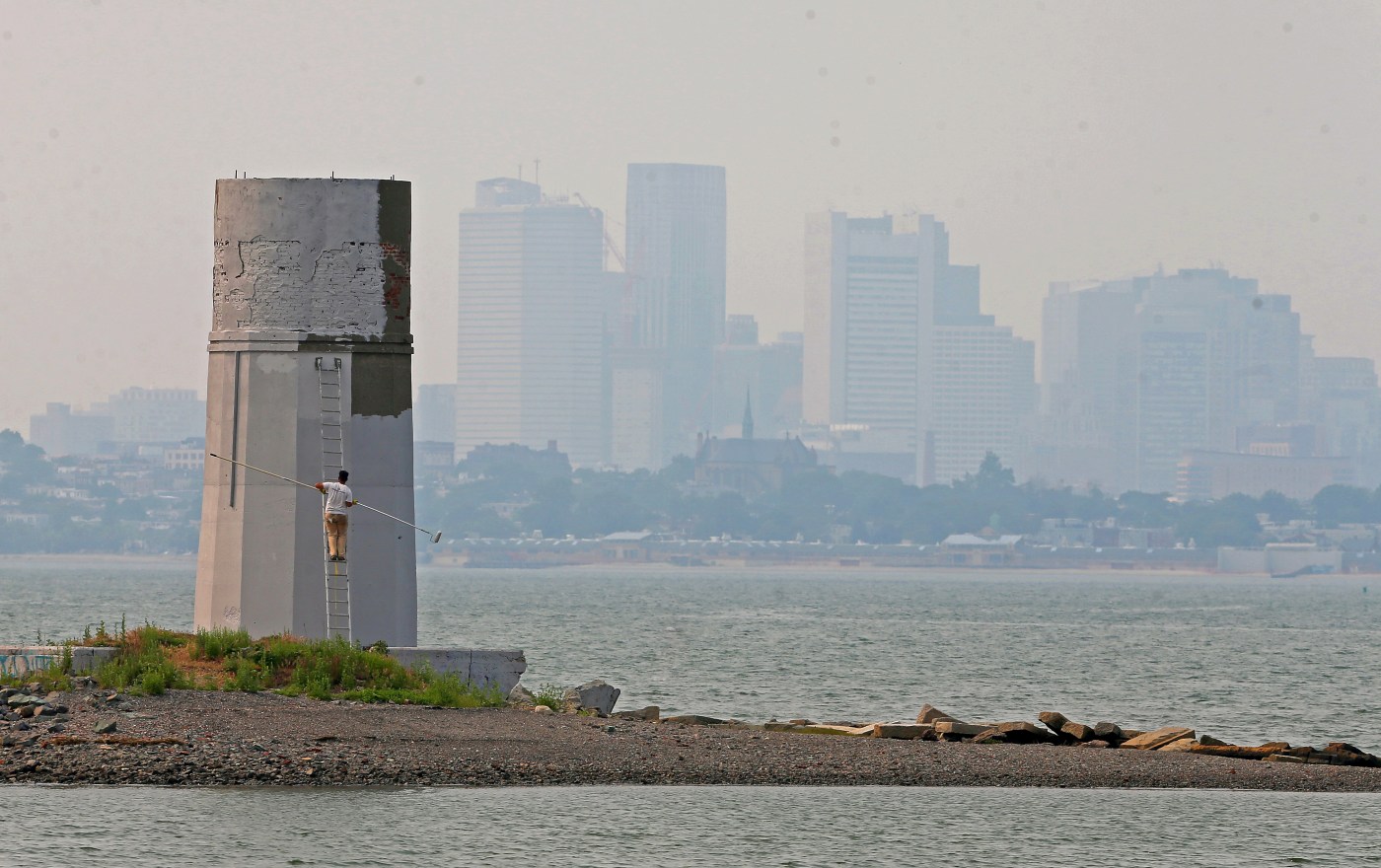
Will Canadian wildfire smoke return to Massachusetts? ‘Keeping an eye on it’
Remember the pesky Canadian wildfire smoke that sparked hazy skies, poor air quality, and made it smell like the dump last year?
It’s deja vu for parts of the country with the heavy smoke returning this week, as Massachusetts officials monitor the potential wildfire impacts while meteorologists are “keeping an eye on it.”
The Canadian wildfire smoke in recent days has been affecting the central part of the U.S., with air quality plummeting in Missouri, Kansas, Iowa and Nebraska on Tuesday.
For those in the Bay State, the good news is this smoke plume is not expected to impact the region in the near future because of the current wind patterns. But if it becomes like last summer, with more and more wildfires burning up in Canada, the smoke and haze could come back.
“Last summer, we had more of these wildfires out across Quebec, and that was impacting the Northeast,” Accuweather Senior Meteorologist Carl Erickson told the Herald on Tuesday.
“At this point there doesn’t seem to be a threat of that, but it looks like it could be another active season with more fires deeper into the summer,” the forecaster added. “We’ll be keeping an eye on it.”
AccuWeather meteorologists expect a near to above historical average number of fires in Canada this year.
Canada shouldn’t have as many wildfires as last year when the East Coast was continuously hammered by heavy smoke plumes. New York City recorded its worst air quality levels in decades.
Related Articles
Gongloff: U.S. isn’t ready for more wildfire smoke
How do wildfires affect mental health? A new study examines the connection
The Massachusetts Department of Environmental Protection — which issued many air quality alerts for the wildfire smoke last year — is monitoring the wildfire season and potential impacts to the Bay State.
The state agency, like Erickson, does not expect that wildfire smoke is in the region’s near-term forecast.
“MassDEP forecasts pollution levels daily to inform the public when fine particle matter or ozone concentrations may reach unhealthy levels and provides advice on what people can do to limit exposure and adverse effects,” MassDEP said in a statement.
Wildfire smoke that drifts into Massachusetts results in elevated levels or fine particulate matter (PM2.5), and also can increase ozone levels.
“When PM2.5 reaches unhealthy levels, MassDEP advises that people (especially in sensitive groups such as children, older persons, people with asthma or other respiratory ailments) should reduce prolonged or heavy outdoor exertion, take more breaks, do less intense activities, follow asthma action plans, and keep quick relief medicine handy,” MassDEP said. “Watch for symptoms such as coughing or shortness of breath.”
MassDEP communicates current and forecast air quality conditions in a number of ways, and issues alerts for days when air quality is expected to be unhealthy. That includes MassDEP’s MassAir website. MassDEP’s Air Quality Hotline is 800-882-1497.


